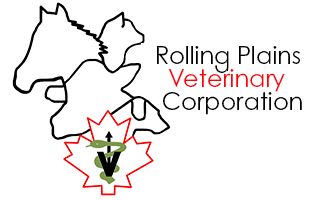
Common Equine Injuries and How Vets Treat Them
September 12, 2023 1:42 pm Leave your thoughtsAs equestrian enthusiasts and conscientious horse owners, we understand the profound joy and undeniable bond that comes with owning a horse. However, it is essential to acknowledge that these magnificent creatures are not invincible despite their strength and grace. Accidents and injuries can occur at any time, putting our equine friends in harm’s way.
In this engaging blog, we will explore the realm of common horse injuries and shed light on how skilled veterinarians at Rolling Plains Veterinary Corporation (RPVC) utilize our expertise and pioneering techniques to provide exceptional care. So, saddle up and join us on this informative journey!
Overcoming Limb Injuries
One of the most frequent roadblocks horses face is limb injuries, ranging from minor sprains to severe fractures. The RPVC team adeptly assesses such injuries using X-ray imaging, ultrasound diagnostics, and thorough physical examinations. Cutting-edge treatment options include immobilization, splinting, physical therapy, and therapeutic shoeing, facilitating a swift recovery and enabling your horse to gallop back to its previous vigor.
Sport horses are prone to various types of injuries due to the intense physical demands placed on their bodies. Here is a summary of common injuries experienced by sport horses:
Deep Digital Flexor Tendon (DDFT) Injury
The deep digital flexor tendon at the back of the horse’s lower leg can be susceptible to strains, tears, or inflammation. These injuries often result from overexertion, poor footing, or sudden movements. DDFT injuries can lead to lameness and restricted movement. Treatment involves a combination of rest, controlled exercise, anti-inflammatory medication, and potentially regenerative therapies to facilitate healing and restore the horse’s normal functionality.
Nerve Blocks
Nerve blocks play a crucial role in diagnosing the source of lameness in sport horses. By temporarily numbing specific nerves around the injured area, veterinarians can identify the precise location causing pain or lameness. This technique allows for accurate diagnosis and subsequent targeted treatment, such as joint injections or surgical interventions if necessary.
Navicular Bone Issues
Navicular bone problems, referred to as navicular syndrome or disease, affect the small navicular bone in the horse’s hoof. Inflammation, degeneration, or fractures of this bone can result in lameness and chronic pain. Therapeutic shoeing, medications, shockwave therapy, and regenerative techniques may be employed to alleviate symptoms. Close collaboration between veterinarians, farriers, and trainers is crucial for managing navicular bone issues effectively.
Sesamoid Bone Injuries
The sesamoid bones are small, delicate structures located in the horse’s fetlock joint. These bones can be susceptible to fractures or ligament damage, often resulting from intense athletic activities or excessive strain. Treatment options depend on the severity of the injury and may include rest, controlled exercise, supportive bandaging, and, potentially, surgical intervention. Rehabilitation programs and regular follow-up consultations are key to a successful recovery.
Superficial Digital Flexor Tendon (SDFT) Injury
The superficial digital flexor tendon at the rear of the horse’s cannon bone can experience strains, sprains, or tears. Overstretching, excessive workload, or surface inconsistencies can contribute to SDFT injuries. Treatment involves a combination of controlled exercise, tendon rehabilitation programs, anti-inflammatory medication, and regenerative therapies to aid in healing and minimize the risk of recurrence.
Tackling Lameness Issues
Lameness issues can significantly hamper a horse’s performance and affect its overall well-being. RPVC experts employ advanced techniques such as flexion tests, nerve blocks, and state-of-the-art imaging technology to pin down the root cause of lameness. Equipped with the knowledge of these underlying issues, they can then provide targeted treatments, including joint injections, regenerative therapies, and surgery if necessary, giving your equine companion the best chance for a full recovery.
Wounds and Lacerations
Horses are naturally curious creatures, and their adventurous spirits can sometimes lead to unfortunate encounters resulting in wounds and lacerations. RPVC veterinarians perform meticulous evaluations of these injuries, ensuring efficient cleaning, debridement, and wound closure techniques. They might also prescribe tailored antibiotic therapy and administer tetanus vaccinations to minimize the risk of infection. By following meticulous wound management protocols, RPVC provides comprehensive care to encourage optimal healing and minimize scarring.
Colic
Colic, a broad term encompassing digestive tract disorders, is a serious concern for horse owners. RPVC veterinarians adopt a proactive approach by utilizing advanced technologies like abdominal ultrasonography, gastroscopy, and rectal palpation to identify the underlying cause of colic. Treatment options include pain management, fluid therapy, and even surgical intervention if required. RPVC’s dedicated team ensures that your beloved horse receives a prompt and accurate diagnosis, leading to a smoother recovery.
Respiratory Conditions
Respiratory issues can plague horses, causing significant discomfort and hindering their performance. At RPVC, expertise is combined with cutting-edge diagnostics such as endoscopy, radiology, and respiratory function testing to unravel respiratory conditions effectively. The veterinarians devise tailored treatment plans that may encompass bronchodilator therapy, antibiotics, and environmental management to optimize your horse’s respiratory health and empower its athletic potential.
Veterinary Hospital Near Me
Horses hold a special place in our hearts, and their well-being is of utmost importance. Fortunately, the exceptional veterinary care provided by Rolling Plains Veterinary Corporation ensures that our equine companions receive the necessary expertise and compassionate attention they deserve.
Whether it’s managing limb injuries, overcoming lameness issues, or mitigating respiratory conditions, RPVC’s team of skilled veterinarians employs a wide range of diagnostics, treatments, and rehabilitation strategies to restore your horse’s well-being. Their commitment to innovation and customer satisfaction makes them an undisputed leader in equine care.
If your horse is dealing with an injury or requires routine health maintenance, do not hesitate to reach out to RPVC. Contact us for more information on our comprehensive equine veterinary services. Trust the RPVC team to put a spring back in your horse’s step!
Categorised in: Horse Care
This post was written by Dr. Marc Phillipot
